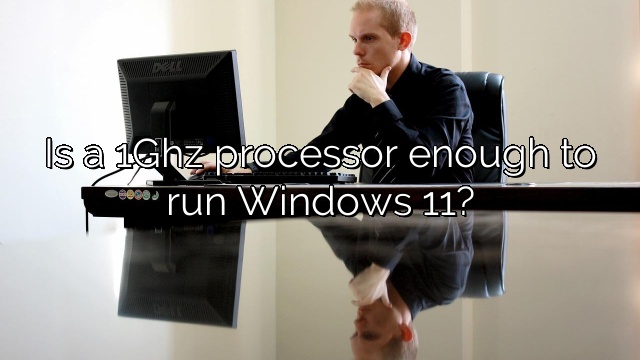
Is a 1Ghz processor enough to run Windows 11?
Microsoft has listed 50 processors from the Intel i3 family of processors that are compatible with the installation of Windows 11 operating system.
How many Intel Core i3 processors does Windows 11 support?
According to Microsoft, Windows 10 will be supported in October 2025. According to this site, as well as Microsoft, Windows 11 supports a range of fifty-core Intel I3 processors. Here is the general list:
Is i3 processor enough for a normal PC?
These resources will help you choose. i3 doesn’t quite fit PC design. A typical PC contains an i3 processor or higher, 4 GB of RAM, a 256 GB hard drive. A regular PC is enough for websites. Can’t comment because you don’t know what type of apps you’re talking about.
Is a 1Ghz processor enough to run Windows 11?
However, it was not clear at the time whether the processor requirements would only apply to future PCs from hardware manufacturers, or whether they would apply to existing laptops and PCs. With the same system requirements, running Windows 11 also requires a reasonable 1GHz dual-core compatible 64-bit processor.
What processor do I need for Windows 11?
To be eligible to install and upgrade to Windows 11, devices must meet the following minimum hardware limits: Processor: 1 gigahertz (GHz) or much earlier with two or more cores on a compatible 64-bit processor or systems on a chip (SoC). RAM: two gigabytes or (GB) more.
Is i3 3rd Gen good for Windows 11?
No, 3rd Gen Intel i3 processor chips do not support Windows 12. 3rd Gen Intel i3 processors are not compatible with Windows 11.
What does the term GHz mean option processor speed is measured in gigahertz or GHz which refers to the number of machine cycles per second that the processor goes through so for example a 3 GHz processor performs 3 billion machine cycles per second option
b) Processor speed is measured in gigahertz or GHz, which refers to the speed at which the CPU retrieves data or instructions from RAM. For example, a processor running at 3 GHz or faster executes 3 billion program aspects per second. … for example, a processor rated at 3 GHz that performs several billion machine cycles per second.
How does a RISC processor differ from an CISC processor is one processor type better than the other Why or why not?
RISC processors are starting to use fixed length instructions. Some, but all non-CISC processors use variable length instructions. … The CISC processor typically uses these instructions in a variety of ways. Because of these differences, a RISC processor simply operates at a higher clock rate than a CISC processor of similar performance.

Charles Howell is a freelance writer and editor. He has been writing about consumer electronics, how-to guides, and the latest news in the tech world for over 10 years. His work has been featured on a variety of websites, including techcrunch.com, where he is a contributor. When he’s not writing or spending time with his family, he enjoys playing tennis and exploring new restaurants in the area.










